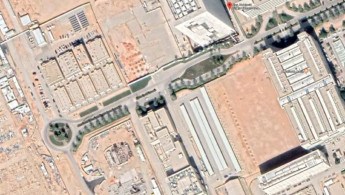UN nuclear watchdog in talks with Saudi Arabia as reactor nears completion
Saudi Arabia’s nuclear programme is in its early stages, with one research reactor nearing completion in the capital. As the kingdom gears up plans to expand its activities to nuclear enrichment, concerns about proliferation have been raised.
In 2018, Crown Prince Mohammed bin Salman, widely seen as Saudi Arabia’s de facto ruler, said the country would develop nuclear weapons if regional arch enemy Iran did.
Read also: Saudi Arabia is the world’s most dangerous cyber-bully
Because its first nuclear reactor has not become operational yet, the IAEA’s inspections in Saudi Arabia are conducted under the Small Quantities Protocol (SQP), which allows states with less developed nuclear capacity exemptions from most non-proliferation obligations and inspections.
“We are in conversation with them. They are interested in developing nuclear energy for peaceful purposes, of course,” IAEA Director General Rafael Grossi told Reuters.
“So it is obvious that when they upgrade their activities, including the introduction of nuclear material in the kingdom, then we will have to have a stronger safeguards system. And nothing makes me think that this is not going to be the case.”
If Saudi Arabia adds nuclear material to the research reactor, the SQP will no longer apply and it will have to allow the IAEA to conduct inspections.
Grossi told Reuters that the IAEA is also discussing the Additional Protocol, which allows tough surprise inspections.
There are currently 31 countries signed up to the SQP but the IAEA wants them to revoke the protocol and allow inspections or sign an updated version of the agreement.
Grossi said that the SQP as it currently stands represented a “weakness” in the IAEA’s global nuclear inspections system.
Follow us on Facebook, Twitter and Instagram to stay connected





 Follow the Middle East's top stories in English at The New Arab on Google News
Follow the Middle East's top stories in English at The New Arab on Google News


